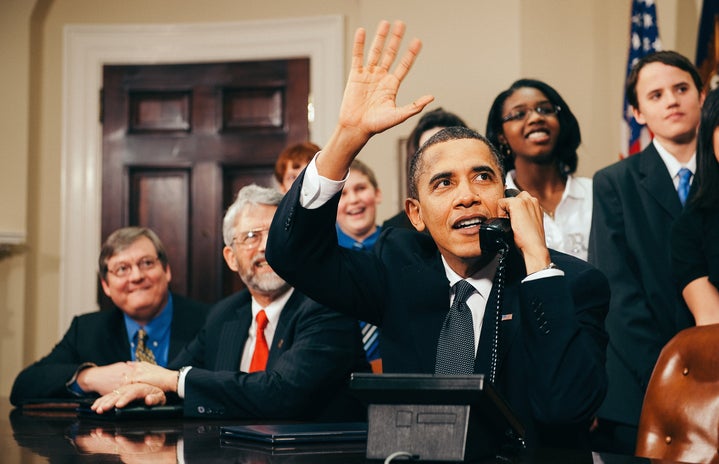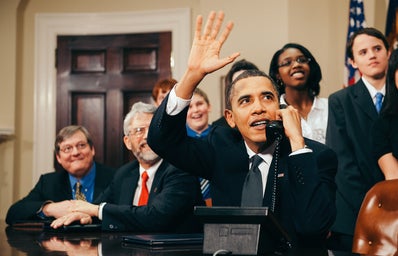Barack Obama is a liberal icon. His expansion of healthcare with the passing of the Affordable Care Act, his stature as a statesman and the great amount of respect he draws from people across the world have meant that many people put him on a pedestal. Barack Obama is also easy to love. His oratory skills are one of his greatest gifts. He can incite people to tears or laughter or anger with ease. As the first African American president, he is a symbol of progression, change, and liberalisation that many now look back on as ‘the good old days’ before Donald Trump imploded any sense of public decency. However, Barack Obama’s legacy is not simply one of liberal daydreams – it is far more complicated than that.
Obama’s use of drone strikes have killed many, many people. Throughout the course of his presidency, he effectively ordered the killings of 3,797 people in this manner, including, horrifyingly, 324 civilians[1]. When presented as figures, these people can slip into a number on a page even after their death, depriving them of their humanity. But they had lives, families, jobs and stresses, like everyone else, in addition to the trauma of knowing they could be murdered at a moment’s notice. Faheem Qureshi was 13, in his living room, surrounded by his family and neighbours, when a missile was launched into his lounge. It was 23 January 2009, just three days after Obama had been inaugurated. This was the first drone strike he ordered. Faheem, a child, spent 40 days in the hospital and lost sight in his left eye. His family also suffered devastating losses; two uncles and a cousin were killed that day. The US has never apologised, provided compensation or brought the perpetrator to justice. Heartbreakingly, Faheem didn’t spend his time in the hospital focusing on recovering; instead he was consumed by thoughts of, ‘what did I do for which I was punished so badly? What did my family do? Why did it happen to me? [2]’. The answer is that Faheem and his family did nothing. The strike was an error.
One would think that Obama’s experience with this first drone strike would have led him to be more discerning in the future. Not so. Barack Obama, Nobel Peace Prize laureate, once said, ‘turns out, I’m really good at killing people’ [3]. Obama and others have been defensive about their use of these strikes. It is true that they can provide regular surveillance of a target and they don’t put a pilot at risk in order to do so. That is perhaps the most compelling argument in favour of drones: the fact that American service personnel are not being put in harm’s way. However, I would argue that while the US president has a particular responsibility to US citizens, the lives of Americans are not worth more than those of Pakistani children, who are constantly threatened by drone capabilities. Terrorism is a threat to all people, however, in one of the most painfully ironic twists, there is evidence to suggest that drones are used by terrorists as a recruitment tool [4].
There is clearly more nuanced discussion to be had in regard to drones, but while Obama’s use of them is one of the most notable parts of his presidency, it is also one that we refuse to confront in any kind of meaningful way. You can be moved by his speech about the Sandy Hook shooting and also be disgusted that he caused the same kind of pain to parents in Pakistan and Afghanistan.
American deaths are not the only ones worth shedding tears over. People cannot continue to be murdered by men in far off countries who are never held to account. Barack Obama cannot continue to be admired as an icon when for so many he represents the tearing apart of families and the most profound form of grief, with no justice to provide solace. His legacy is complicated. Obama is complicated. The blind reverence of so many celebrities and politicians of this man should not continue without a public confrontation of the effects of some of the choices he made in office.
References:



